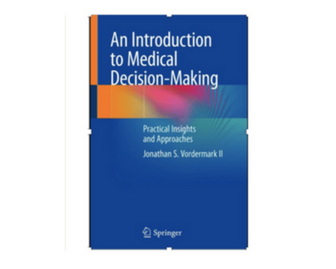Our Thinking
THE COGNITIVE AUTOPSY
.png?width=600&height=480&name=Untitled%20design%20(7).png)
A great book that we recommended to you recently, Vordermark’s An Introduction To Medical Decision-Making, is THE textbook to use to learn how doctors think when good decisions are being made. But how about when diagnostic mistakes are being made? How does that work?
The Cognitive Autopsy focuses specifically on uncovering the “root causes” of such errors. Read it and you will find that the causal factor here is not usually a practitioner’s lack of knowledge, but rather one or more of a laundry list of biases that can sneak into the diagnostic process. An example? “Diagnosis Momentum.” When a diagnosis is entered into a patient’s chart and that patient moves on to another clinician for a “second opinion,” that opinion is heavily impacted by what is already in the chart. The more doctors that have confirmed the diagnosis already in the paperwork, and the more senior these physicians are, the more “diagnosis momentum” builds up, often blocking consideration of any alternative diagnoses despite treatment failure.
Another great example of bias drawn from the book is encapsulated in the quote “Geography is destiny.” Amazingly, if a patient comes out of an ambulance and winds up by chance in a coronary suite in the ER, established protocols kick in and she is more likely to be diagnosed and treated as having a cardiovascular problem than if she is placed in a non-specialized room.
So, what’s going on here? Intellectual laziness, limited time to take action, emotions and numerous other forces enter into the medical decision making process in the ER, described as the “petri dish” of medical errors. All put together, these forces cause diagnoses to be correct only about 85% of the time. Sound good? Would you get on an airplane if you knew that the airline’s flight success rate was 85%?
So why would a pharmaceutical marketer or marketing researcher want to read this book? Easy one! Getting an understanding of the way our physician customers make mistakes provides an important window into the way they make decisions. Into their faulty heuristics and biases. All very important to know as we decide how we are going to market our products to these doctors. Are we going to try to overcome their error prone tendencies, or make use of them?
Think about the possibilities here!
If you would like to engage in further conversation about this book, please feel free to reach out to Richard directly at (215) 422-2955 or via email at Richard.Vanderveer@think-
Want to learn more? Visit Our Innovations
Other ThinkBOOKs

An Introduction to Medical Decision-Making
Check out our other ThinkBook by Richard Vanderveer discussing how we learn that medical decisions are also made using a dual system...



